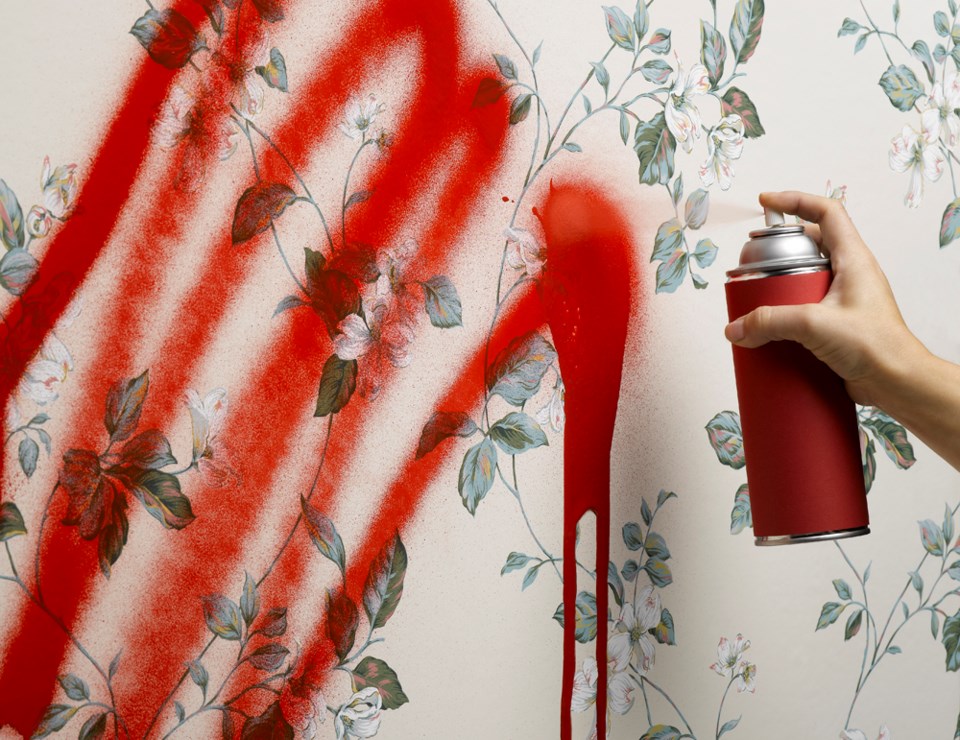Ted heard warning bells in his head before renting out his Burnaby basement suite.
He still hears warning bells as he lays in bed at night, remembering what happened.
“But I was having trouble finding a tenant at the height of the first COVID wave and so I looked past a few of those bells,” said Ted. “I won’t make that mistake again.”
Ted contacted the NOW after reading a recent article on a “tenant from hell” who stole appliances before moving out.
“I think what happened was nearly as bad,” Ted said. “I went to visit my tenant to discuss noise issues and they didn’t answer. When I looked through the window, I realized that they had pretty much destroyed the place and then skipped out without any notice. I went in and all the furniture they had moved in was now gone. They spray painted nearly every inch of the place with graffiti – much of it aimed at me with expletives. All the walls, the floors, the ceiling - even the bathroom tub. I had to repaint the entire place and replace all of the flooring. It physically hurt to go through all of this.”
I also received a letter from Al, a Burnaby landlord who offered some advice for both tenants and landlords, based on 13 years of experience.
“I read the recent story wherein a landlord was surprised and angry that a security deposit couldn't be seized (without due process) in lieu of rent owing,” Al wrote. “There's no good reason for landlords to be surprised by rules. Landlords must educate themselves so as to protect themselves and so they may respect the rights of their tenants. The Residential Tenancy Act can be read online. The excellent BC Government website asks and then answers every conceivable question for both landlords and tenants. In fact, questions asked and answered include: Can I keep the security deposit in lieu of rent without the tenant's consent?
“Pre-purchase of the apartment, I chose to take a continuing education course on residential tenancy law and another on real estate investing. $70 well spent, but everything I learned can be searched-out online, too. Most importantly, I learned to avoid problem tenants, but tips to better market my property were invaluable, too.”
Here are Al’s top tips to ensure you rent to responsible people:
- PRE-INTERVIEW by telephone! You'll exhaust yourself meeting poor prospects otherwise. Be businesslike: This is not a chat, so have your hard questions ready. Beware hard luck stories - business or charity? Sufficient income and proof of same? Current income secure? Housing situation now and previously? Ready to consent to a credit check? What government photo identification will you produce? Got good IDs for all adult occupants (name each occupant, even children, in the agreement - otherwise any number of people can bunk there)? No, you can't bring your things, interview, then move-in tonight.
- DO CREDIT CHECKS. Expect bad applicants to have really bad histories. Online services for landlords will do credit checks and more cheaply. As a last step in the application process, I pay $25 for a basic credit report with consent of the applicant. Results are returned in a few hours. For a few dollars more, if desired, they will cross-reference databases and such to better confirm the ID that was presented to you is genuine. Applicants MUST have good ID to support these credit checks. Responsible people have ID.
- GET IT IN WRITING. BOTH AN APPLICATION FORM AND A TENANCY AGREEMENT OR LEASE. You can't lease a Bentley on a handshake deal. Why would you give-up a property worth hundreds of thousands of dollars on a handshake? Sample tenancy agreements and application-to-rent forms are online. In regards to the application form, the applicant should sign a statement attesting to the accuracy of the information provided - lying to you is evidence of bad faith for future proceedings.
Follow Chris Campbell on Twitter @shinebox44.



